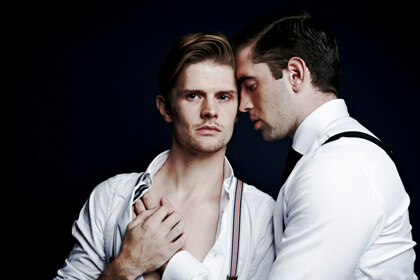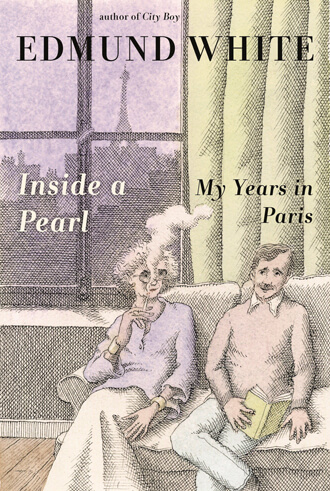James Wilby and Hugh Grant in James Ivory’s 1987 “Maurice,” based on the novel by E.M. Forster, which went unpublished in the author’s lifetime. | COHEN MEDIA GROUP
The elegant gay romantic drama “Maurice,” adapted for the screen by filmmaking and life partners James Ivory and Ismail Merchant, celebrates its 30th anniversary this year with a 4K restoration and a theatrical re-release. Based on E. M. Forster’s posthumously published novel — the subject matter forbid the book’s publication during the author’s lifetime — “Maurice” came out the same year that Britain’s Prime Minister Margaret Thatcher engineered the enactment of Clause 28, which restricted “the promotion of homosexuality” by local governments and schools. The film’s Edwardian era message about expressing same-sex love still resonates now.
“Maurice” kicks off a new series devoted to lost queer classics at the recently renovated Quad Cinema in the West Village.
Maurice (James Wilby) attends Cambridge, where he meets Clive Durham (Hugh Grant), who falls in love with him. Maurice is shy, but he too falls for Clive. However, their love must remain platonic; Clive feels their reputations are at risk, especially after their classmate Risley (Mark Tandy) is arrested on immortality charges.
“Maurice” title character James Wilby recalls Merchant-Ivory gay gem
While Clive decides to marry, Maurice seeks medical advice to “cure” his homosexuality, visiting a hypnotist, Dr. Lasker-Jones (Ben Kingsley). However, after Alec Scudder (Rupert Graves), the handsome gamekeeper at Clive’s estate, pays a nocturnal visit to Maurice while he’s visiting there, suddenly new possibilities emerge. Maurice is besotted, though he’s also afraid of the possible consequences — including blackmail — from a relationship with Scudder.
“Maurice” lovingly details its title character’s journey to self-acceptance. On the phone from the UK, James Wilby chatted with Gay City News about playing Forster’s hero and making the queer classic.
GARY M. KRAMER: Looking back, what can you say about taking a role like Maurice? Did you have concerns back in the day about playing gay at a time when actors largely resisted playing queer roles?
JAMES WILBY: Not for a minute. As an actor you take on the role, you don’t worry about political contents. I played the role. At the time I was a nobody. It put me on the map and was a great experience. I got to be part of the Merchant-Ivory team. It was an amazing thing to have happened, a great role. He happens to be gay, but who gives a shit? I’ve gone on and played other gay roles.
GMK: But the film came out the same year Clause 28 was enacted. Were there concerns?
JW: It didn’t worry me at all. It was only a moderate success here, in the UK, where, dare I say it, the gay press were sort of mealy-mouthed about it. James Ivory couldn’t understand it. They couldn’t embrace it because of the political climate at time. It was very successful in New York and San Francisco and in France and Italy. We did a publicity tour of six to seven cities in the US. I went up to say something after a screening in San Francisco, and when I said I had a wife the whole audience booed.
GMK: Maurice seems shy, then righteous, then bold. He takes calculated risks, but soon comes to bare himself both physically and emotionally. What thoughts or judgments do you have about his character?
JW: Reading the book tells you everything you need to know. One of the remarks, in the foreword, I think — it’s its not part of the narrative — Forster says he deliberately chose a character to be sporty, handsome, and mentally taunted. He dropped this ingredient in that he’s gay. That makes Maurice start to question things. We look around when we leave school and we don’t know who we are. Suddenly you challenge the things you have been force fed — or you don’t. Maurice is at the point where he could have carried on as a middle class stockbroker and have a sham marriage, and he decides to take his sexuality on whereas Clive doesn’t. That’s what got me out of that kind of lazy way of thinking of carrying on what you’ve been told and pass on to your child.
James Wilby, Rupert Graves, and Hugh Grant in a promotional shot for “Maurice.” | COHEN MEDIA GROUP
GMK: What do you think Scudder sees in Maurice? Maurice doesn’t treat him well. There is a power struggle between them, especially as Scudder sees Maurice as an equal, no better than him. Why do you think Scudder pursues him?
JW: I guess that’s the class thing going on. Is the master of the house gong to marry the servant girl? Generally not. There is an understanding that the servant class didn’t stand up to the landowner. Scudder is bold enough to do it, and Maurice is able to accept that he is his equal. Forster was such a forward thinker, challenging all these British ways of life. There’s always a character in his novels that represents change and [one] epitomizing everything Forster despises about the British. I played that character, Charles Wilcox, in “Howard’s End.”
GMK: Do you believe in hypnosis? Are you talented at boxing or cricket? What can you say about Maurice’s experiences overlapping with your own?
JW: Someone tried to hypnotize me to stop smoking and it lasted five hours. So I don’t believe in it, but maybe with a good hypnotist. I was a good sportsman in rugby, not boxing or cricket. I held school records. I was very sporty. If you’re a cricketer, you’d see I’m not one. But Scudder is even worse.
GMK: What thoughts do you have on the film’s depiction of homosexuality, both in the historical sense and in the physical sense? Was the film too strong at the time, or do you think it was restrained?
JW: We don’t see Maurice and Scudder bugger each other, but it’s implied. You do see them naked. I think Ivory got it right. If it had been overt, it would have done more damage than good at the time. Forster doesn’t dwell on the sex act in his book, so that’s accurate. I find it more erotic when you don’t see a sex scene.
MAURICE | Directed by James Ivory | Cohen Media Group | Opens May 19 | Quad Cinema, 34 W. 13th St. | quadcinema.com


































